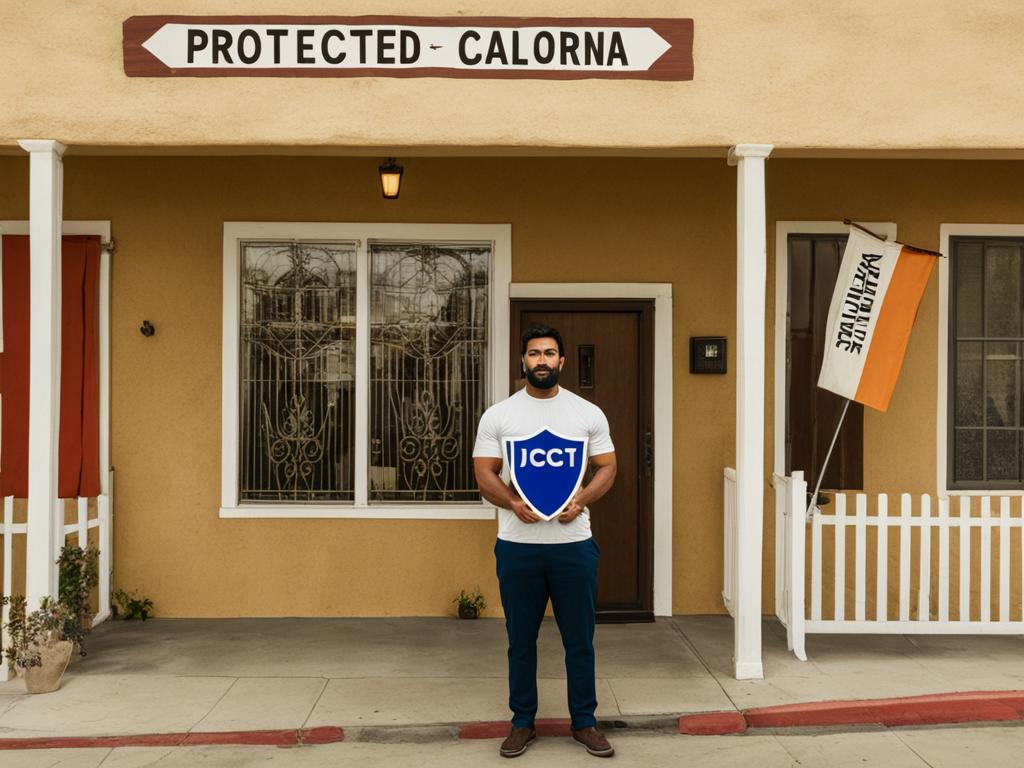Understanding Landlord Harassment in California
Landlord harassment in California refers to a set of actions or strategies used by landlords to force, intimidate, or disrupt tenants’ peace and comfort, with the goal of getting them to leave their rental properties. It is a prevalent issue in California’s rental market, which is known for its diverse tenant population and high demand for rental units. California law protects tenants from landlord harassment, ensuring their right to live peacefully without being subjected to such behaviors.
Key Takeaways:
- Landlord harassment in California involves actions aimed at pressuring tenants to leave their rental properties.
- Examples of landlord harassment include frequent unscheduled visits, refusal to make necessary repairs, threats, and illegal eviction attempts.
- Tenants in California have strong legal protections against landlord harassment under the California Civil Code Section 1940.2.
- If facing harassment, tenants should document incidents, notify the landlord in writing, and seek assistance from local housing agencies or tenant rights organizations.
- Tenants can report harassment by gathering evidence, contacting housing agencies, and, in severe cases, pursuing legal action against the landlord.
Examples of Landlord Harassment in California
Landlord harassment in California can take various forms, all of which can cause immense stress and discomfort for tenants. Understanding these examples is crucial for tenants to recognize when their rights are being violated. Here are some common examples:
- Frequent unscheduled visits by the landlord: Landlords may enter the rented property without providing proper notice, often invading tenants’ privacy.
- Refusal to make necessary repairs: Landlords have a legal obligation to maintain the habitability of the rental unit. Intentional neglect or refusal to address repair issues can create unsafe or uncomfortable living conditions for tenants.
- Threats and intimidation: Landlords may resort to threats, intimidation, or verbal abuse as a means to coerce tenants into vacating the premises.
- Illegal eviction attempts: Some landlords may try to evict tenants without following legal procedures, such as changing locks, removing belongings, or cutting off utilities.
These examples illustrate the various ways in which landlords may harass tenants in California, violating their rights and compromising their quality of life.
Image: A visual representation of landlord harassment in California. This image highlights the power dynamics between landlords and tenants, emphasizing the need for tenant protection under the law.
Tenant Rights Against Harassment in California
Tenants in California have strong legal protections against landlord harassment. The California Civil Code Section 1940.2 specifically prohibits landlords from interfering with tenants’ right to quiet enjoyment of their rented properties.
If a tenant faces harassment, they have several options for recourse. Firstly, they should document all instances of harassment, including dates, times, and any witnesses. They should then notify the landlord in writing and contact local housing agencies if the harassment persists. In serious cases, the tenant may consider seeking legal assistance from free or low-cost legal aid organizations or tenant rights organizations.
In order to effectively address landlord harassment, it is important for tenants to understand their rights and be proactive in asserting them.
Steps to Take Against Landlord Harassment
-
Document incidents: Keep a record of all instances of harassment, including dates, times, and any witnesses present. This documentation will serve as crucial evidence in any legal proceedings that may follow.
-
Notify the landlord in writing: Clearly communicate your grievances to your landlord through a written letter or email. Include specific details about the harassment you have experienced and express your expectation that it cease immediately.
-
Contact local housing agencies: If the harassment continues despite your attempts to address it directly with your landlord, reach out to local housing agencies for assistance. These agencies can provide guidance, mediation services, and support in enforcing your rights under California law.
-
Seek legal assistance: In more severe cases where harassment persists or escalates, it may be necessary to seek legal assistance. There are free or low-cost legal aid organizations and tenant rights organizations that can provide guidance, representation, and support in taking legal action against your landlord.
Resources for Tenant Rights Assistance in California
| Organization | Services Provided | Contact Information |
|---|---|---|
| Legal Aid Foundation of Los Angeles | Free legal assistance for tenants facing harassment or eviction | Website: www.socallegalaid.org Phone: (800) 433-6251 |
| Tenant Rights Legal Center | Consultations, legal representation, and advocacy for tenants | Website: www.tenantrightscenter.org Phone: (213) 388-1000 |
| Housing Rights Center | Mediation, counseling, and investigation of housing discrimination complaints | Website: www.hrc-la.org Phone: (800) 477-5977 |
| Tenant Law Group | Legal advice, representation, and assistance in tenant rights cases | Website: www.tenantlawgroupsf.com Phone: (415) 915-7445 |

By understanding their tenant rights and taking appropriate action, tenants can protect themselves against harassment and ensure their right to a safe and peaceful living environment in California.
How to Report Landlord Harassment in California
Reporting landlord harassment is crucial for tenants who wish to address the issue and seek justice. To report harassment, tenants should gather evidence by documenting each incident, including the date, time, and any witnesses involved. They should also save any relevant communications, such as emails, texts, images, or videos.
It is important to report the harassment to local housing agencies or organizations that specialize in assisting harassed tenants. These agencies can provide guidance on the next steps to take and offer support throughout the process.
If the harassment persists or escalates, tenants may consider seeking legal action. Consulting with lawyers or legal aid organizations can provide valuable advice on how to proceed and the best course of action to take.
Documenting Incidents of Harassment
When reporting landlord harassment, it is essential to have detailed documentation of each incident. This documentation serves as evidence to support the tenant’s claim. Here are some steps to follow when documenting incidents:
- Record the date, time, and location of each harassment incident.
- Document a detailed description of what occurred, including the actions or behaviors of the landlord.
- Note down any witnesses present during the incident and their contact information.
- Save any written evidence, such as emails, texts, or letters, related to the harassment.
- If possible, take photos or videos to provide visual evidence of the harassment.
By having a thorough documentation of the harassment incidents, tenants can present a strong case when reporting the harassment to the appropriate authorities.
Reporting to Local Housing Agencies
Reporting landlord harassment to local housing agencies can help tenants receive the support and assistance they need. These agencies are equipped to handle cases of landlord harassment and can offer guidance on the reporting process.
When reporting to local housing agencies, tenants should provide all the documented evidence of the harassment. They should also be prepared to provide additional information, such as lease agreements, rental payment receipts, and any previous complaints made to the landlord. This information helps the housing agency assess the situation properly and take appropriate action.
Legal Assistance and Consultation
In some cases, tenants may require legal assistance to address landlord harassment effectively. Lawyers and legal aid organizations specialize in tenant rights and can provide valuable guidance throughout the process.
Tenants can consult with lawyers or legal aid organizations to understand their rights, explore options for legal action, and determine the best course of action based on their specific situation. These professionals can provide advice on filing lawsuits, representation in court, and negotiating with the landlord to resolve the issue.
Reporting landlord harassment is an essential step towards protecting tenant rights and addressing the issue. By documenting incidents, reporting to the appropriate authorities, and seeking legal assistance if needed, tenants can take proactive steps to address and resolve landlord harassment in California.
Legal Actions Against Landlord Harassment in California
After documenting incidents of landlord harassment, you have legal recourse options available to you. One possible outcome of legal action is that you write a letter to the landlord demanding that the harassment cease. If the harassment persists or worsens, you can contact local housing agencies or specific organizations that deal with landlord harassment, such as the Los Angeles Housing + Community Investment Department or the San Francisco Rent Board.
In more severe cases, you may choose to file a lawsuit against the landlord. If successful, the landlord may be required to pay damages, stop the harassment, and cover your legal fees. It is important to note that you can also sue your landlord for emotional distress in California under certain circumstances.

Remember, taking legal action against landlord harassment is a way to protect your rights as a tenant and seek justice. Consulting with legal professionals and understanding your legal recourse options can help you navigate through the process effectively.
California Tenant Rights: What Landlords Cannot Do
As a tenant in California, you have certain rights that landlords are required to respect. Understanding these rights is crucial to ensure that you are protected and treated fairly. Here are some key rights that landlords cannot infringe upon:
- Rent Control: Landlords in California are prohibited from raising rent by more than 10% per year or 5% plus the cost of living, even when new tenants move in. This rule helps to ensure that rental prices remain reasonable and affordable.
- Non-Discrimination: Landlords cannot discriminate against tenants based on factors such as race, religion, sex, national origin, family status, or disability. Everyone has the right to equal treatment and opportunity in housing.
- Privacy: Your privacy as a tenant is protected by law. Landlords cannot enter your rental property without proper notice, usually 24 hours in advance, unless it’s an emergency. You have the right to enjoy your space without unnecessary intrusion.
- No Retaliation: If you complain to your landlord about health or safety risks in your rental unit, they cannot retaliate against you. Retaliation is illegal and includes actions such as eviction or rent increases in response to your complaint.
- Maintenance and Repairs: Landlords are responsible for ensuring that your rental unit is habitable and safe. They must address necessary repairs and maintain the premises in a reasonably good condition.
- Proper Eviction Procedures: If a landlord wishes to evict a tenant, they must follow the proper legal procedures. They cannot evict you without a valid reason, such as non-payment of rent or lease violations. Understanding the eviction process can help protect you from unlawful eviction attempts.
These tenant rights are designed to protect Californians from landlord harassment and ensure safe and fair housing. It is important to be aware of your rights as a tenant and take action if you believe they have been violated. By knowing what landlords cannot do, you can advocate for yourself and seek the necessary recourse if needed.

Remember, if you believe your rights as a tenant have been violated, documenting incidents and seeking professional advice from legal aid organizations or tenant rights organizations can help you navigate the legal process and protect your rights.
Conclusion
Landlord harassment is a significant issue that poses a threat to the well-being and rights of tenants. Fortunately, California has robust laws in place to protect tenants from such behavior. By familiarizing yourself with these laws and understanding your rights as a tenant, you can effectively combat landlord harassment and ensure a peaceful living environment.
If you find yourself facing landlord harassment, it is crucial to document each incident thoroughly. Keep a record of dates, times, and any witnesses involved. This documentation will serve as essential evidence if you need to take legal action against your landlord.
Reporting the harassment to the appropriate authorities is another important step in addressing the issue. Contact local housing agencies that specialize in assisting harassed tenants, or reach out to specific organizations such as the Los Angeles Housing + Community Investment Department or the San Francisco Rent Board. They can provide guidance and support throughout the process.
In more severe cases, seeking legal assistance may be necessary. Free or low-cost legal aid organizations and tenant rights organizations can provide you with the professional help you need to navigate the legal system and protect your rights. Remember, tenants have the right to live in a safe, comfortable, and harassment-free environment. By taking action, you can put an end to landlord harassment and ensure your peace of mind.
FAQ
What is considered landlord harassment in California?
Landlord harassment in California refers to a set of actions or strategies used by landlords to force, intimidate, or disrupt tenants’ peace and comfort, with the goal of getting them to leave their rental properties.
What laws protect tenants from landlord harassment in California?
California Civil Code Section 1940.2 specifically prohibits landlords from interfering with tenants’ right to quiet enjoyment of their rented properties.
What are examples of landlord harassment in California?
Examples of landlord harassment in California include frequent unscheduled visits, refusal to make necessary repairs, threats and intimidation, and illegal eviction attempts.
What are the tenant rights against harassment in California?
Tenants in California have the right to live peacefully and without harassment. They can notify the landlord in writing, document instances of harassment, and seek assistance from local housing agencies or legal aid organizations.
How can I report landlord harassment in California?
To report landlord harassment in California, tenants should gather evidence, document incidents, save relevant communications, and report the harassment to local housing agencies or organizations that specialize in assisting harassed tenants.
What legal actions can tenants take against landlord harassment in California?
Tenants in California have legal recourse options, such as writing a letter to the landlord demanding the harassment cease, contacting local housing agencies, or filing a lawsuit against the landlord for damages and legal fees.
What are the tenant rights that landlords cannot violate in California?
Landlords in California cannot raise rent excessively, discriminate against tenants based on protected characteristics, invade tenants’ privacy, retaliate against tenants, neglect necessary repairs, or unlawfully evict tenants.
What are the penalties for landlords who engage in harassment in California?
Landlords who engage in harassment can be held accountable for damages, including punitive damages and attorney expenses.
Can tenants sue their landlords for emotional distress in California?
Under certain circumstances, tenants can sue their landlords for emotional distress in California.
What is the California landlord harassment law?
The California landlord harassment law is outlined in the California Civil Code Section 1940.2, which prohibits landlords from interfering with tenants’ right to quiet enjoyment of their rented properties.

